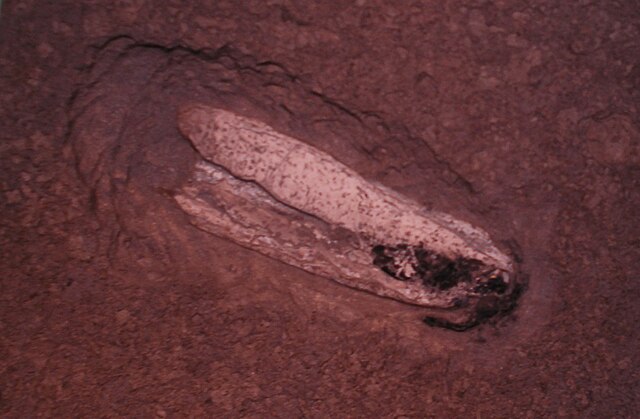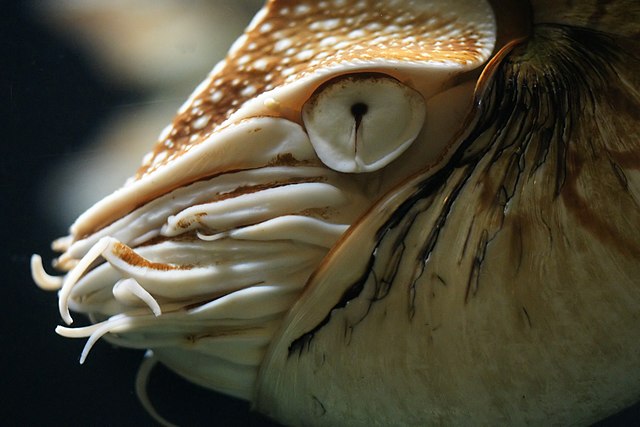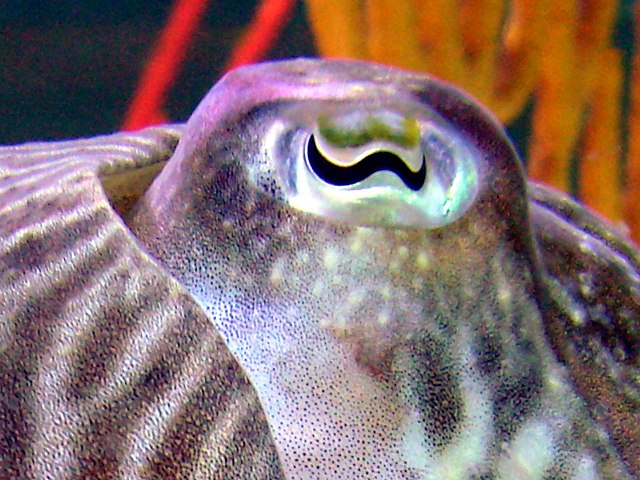The gladius, or pen, is a hard internal bodypart found in many cephalopods of the superorder Decapodiformes and in a single extant member of the Octopodiformes, the vampire squid. It is so named for its superficial resemblance to the Roman short sword of the same name, and is a vestige of the ancestral mollusc shell, which was external. The gladius is located dorsally within the mantle and usually extends for its entire length. Composed primarily of chitin, it lies within the shell sac, which is responsible for its secretion. Some species, like the bigfin reef squid, still has a gladius with some degree of mineralization.
Gladius, showing measurement of rachis and vane
Fossilised gladius of Trachyteuthis
Fossilised gladius of Teudopsis
Paralarva chiroteuthids (such as the Chiroteuthis veranyi pictured) are unusual in that they possess a greatly elongated gladius extending well beyond the fins; this supports a long, trailing tail-like structure.
A cephalopod is any member of the molluscan class Cephalopoda such as a squid, octopus, cuttlefish, or nautilus. These exclusively marine animals are characterized by bilateral body symmetry, a prominent head, and a set of arms or tentacles modified from the primitive molluscan foot. Fishers sometimes call cephalopods "inkfish", referring to their common ability to squirt ink. The study of cephalopods is a branch of malacology known as teuthology.
Cephalopod
The primitive nautilus eye functions similarly to a pinhole camera.
A cuttlefish with W-shaped pupils which may help them discern colors
This broadclub cuttlefish (Sepia latimanus) can change from camouflage tans and browns (top) to yellow with dark highlights (bottom) in less than a second.








